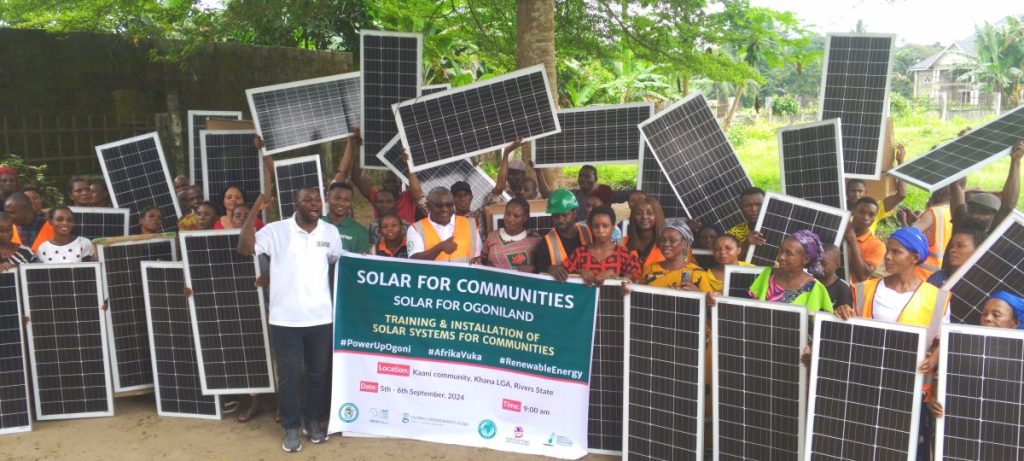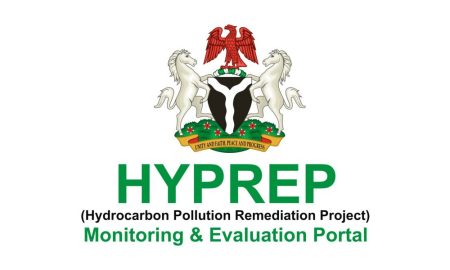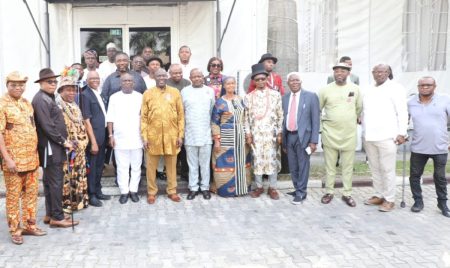
Mkpoikana Udoma
Port Harcourt — In a historic move, four civil society groups have launched the “Solar for Ogoniland” initiative, bringing renewable energy to Kaani community that has never had electricity since its existence.
Kaani community in Khana Local Government Area of Rivers State, according to its Paramount Ruler, H.R.H Chief Godwin Barikpoa Apere, since its existence in the 15th century till date has never experienced electricity supply, apart from generators in few homes.
Apere who expressed gratitude for the project, said other than the efforts of the CSOs, the government at all levels ought to light up the community because it will reduce crime, empower the people, and thrive small-scale businesses.
“Kaani is the single largest community in Khana LGA, this project means a lot to me. Providing 50 homes with solar power means the community is already well-lit. We have never had electricity apart from generator, since the inception of this community.
“This community was established around the 15th century and we have never seen power supply; governments come and go, yet nothing to show.”
The project is carried out by four CSOs namely, the Global Initiative for Food Security and Ecosystem Preservation, Lekeh Development Foundation, Quest for Growth and Development Foundation, Society for Women and Youth Affairs, with support from 350Africa.Org and Global Greengrants Fund.
Speaking, Dr. David Michael Terungwa, Team Lead of Global Initiative for Food Security and Ecosystem Preservation, GIFSEP, emphasized the importance of powering Ogoniland with renewable energy, given its status as the most polluted area in the world.
Terungwa explained that the ‘Solar for Communities’ initiative was not just starting in Ogoni, as the group had carried out the same project for vulnerable communities in Benue State, as well as IDP camps in the North East.
“This is part of our ‘solar for communities’ initiative and today we’re launching ‘solar for Ogoniland’. We chose Kaani community because they’ve never had electricity since its existence, and knowing the importance of Ogoniland to Nigeria, we thought that this community deserved to be powered with renewable energy.
“We carried out an energy audit of this community and we discovered that people here do not have electronics in their homes apart from their phones, which they pay N200 to charge every day.
“We want to show that it’s possible to power homes with little investments. We are trying to spark the narrative, to the government and government agencies that apart from installing solar street lights on the Niger Delta homes can also be powered by solar.”
Also speaking, Mr. Friday Nbani, Executive Director of Lekeh Development Foundation, highlighted that the project aims to promote carbon emission reduction in the Niger Delta and create jobs within the renewable energy space.
“We are providing 5,000 watts capacity solar power, as part of efforts to promote carbon emission reduction in the Niger Delta. We are also training some youths of this community to become solar technicians, which is a way of creating jobs within the renewable energy space.
“We are not just giving out solar panels, we are installing them free of charge for them and also providing them technical skills for the youths so they can install and maintain it by themselves.
“Each panel has 100 watts capacity and 20 volts battery. This is a starting point, we’re looking forward to reaching more vulnerable communities without electricity. It’s possible to transit from fossil fuel to renewable energy.”
For her part, Mrs. Amanie Stella, Executive Director of the Society for Women and Youths Affairs, SWAYA, emphasized the importance of energy transition in Nigeria.
“We are talking about energy transition in Nigeria and there are communities that have never seen power supply. This is a test run and we’re targeting 50 houses and homes occupied by the most vulnerable people who cannot afford to buy a litre of fuel to power their generators.”
A beneficiary, Mrs. Barisuka Confidence, welcomed the solar power, citing the relief from buying fuel to charge her phone. “Before now, we used to buy fuel to power our generator to charge phones and fuel is now N1500 a litre. So this solar will give me light and I will no longer pay money to charge my phone.”



